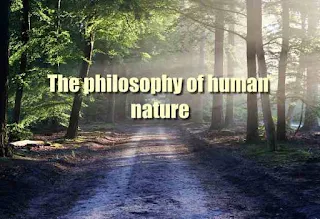The philosophy of human nature
The philosophy of human nature contains a complete theory of human interestsThose general causes which actuate nature, denominated principles, whether moral or physical, operate with undeviating uniformity. However much the force of one may be diminished or diverted by the opposition of another, each preserves its original nature unchanged until it is entirely destroyed. The purpose of philosophy is to analyze and simplify nature; to reduce the huge mass and endless diversity of the particular events and objects which it contains to a few principles, to which all may be referred; and to recognise and detect the same principle under every form, and in every variety of combination.
Hence everything will become distinct; demonstration, discrimination, and argument will be simple and easy; and knowledge will acquire perfection.
Principles are few, but particulars and cases are infinite. A perfect knowledge, therefore, of the few principles which move the machinery of nature is far preferable to the most enlarged experience of the longest life. By it, we learn the precise force and value of each event; and have the certainty of demonstration instead of that doubtful knowledge of futurity which can be derived from experience alone.
When the parts of any piece of machinery are thrown together in confusion, the eye cannot comprehend it, nor does the mind form an idea of its purpose. But when every wheel is put in its proper place, the use of each is immediately perceived. From an inspection of their combined movements, we acquire a conception of their mutual dependence as far superior to that which could be derived
details :
Author: John Duncan
Publication date: 1815
Remark - a book about ethics under a pseudo name
Download PDF book
Download PDF book


